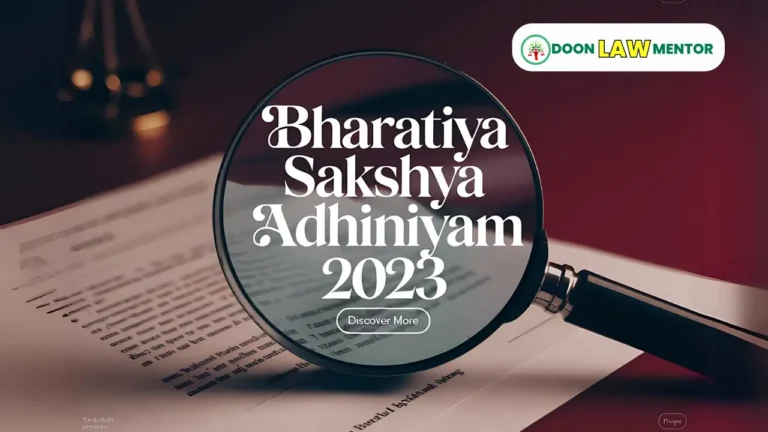The Supreme Court of India has issued a landmark directive instructing all High Courts to ensure that pending execution petitions are resolved within six months. This decision, delivered in PERIYAMMAL (DEAD THR. LRS.) AND ORS v. V. RAJAMANI AND ANR. (2025 SC), aims to tackle delays in civil execution cases and ensure that decree-holders can reap the benefits of their decrees without unnecessary legal hurdles. Failure to comply will result in disciplinary action against trial court judges. This ruling is set to streamline execution proceedings and impact judiciary exams and legal practice across India. Read the full case analysis and its implications on judicial reforms.
Table of Contents
INTRODUCTION
The Supreme Court of India has issued a landmark directive aimed at expediting execution proceedings in civil cases. The top court has mandated all High Courts to instruct their district judiciary to dispose of all pending execution petitions within six months. Any failure to comply with this directive will result in disciplinary action against the presiding officer of the concerned trial court.
This ruling is expected to have a far-reaching impact on the Indian legal system, addressing the long-standing issue of delayed justice in execution proceedings.
Case Name:
📝 PERIYAMMAL (DEAD THR. LRS.) AND ORS Versus V. RAJAMANI AND ANR. (2025 SC)
🔹 Supreme Court’s Directive: Six-Month Deadline for Execution Cases
SC’s Key Observations
A bench comprising Justice JB Pardiwala and Justice R Mahadevan directed all High Courts to:
✅ Collect data on pending execution petitions from district judiciary.
✅ Issue administrative orders or circulars directing district courts to dispose of execution petitions within six months.
✅ Ensure presiding officers failing to meet the deadline are held accountable before the High Court on its administrative side.
✅ Submit reports on pendency and disposal figures to the Supreme Court registry.
The Court emphasized that decree-holders must be able to reap the benefits of their decree without undue delay.
📌 Supreme Court’s Verdict: “Once data is collected, High Courts shall issue orders ensuring that execution petitions are decided within six months. If not, the presiding officer will be answerable to the High Court.”
🔹 Background of the Case: A Four-Decade-Old Property Dispute
The case stemmed from a 1986 suit for specific performance regarding a land sale agreement. The plaintiff obtained a decree for the sale of property, but even after decades, the legal heirs of the decree-holder had not received possession due to execution delays and third-party objections.
The Madras High Court worsened the situation by:
❌ Deleting respondents’ names from execution proceedings.
❌ Allowing objections under Section 47 CPC, stalling the decree’s execution.
Supreme Court’s Response:
The SC set aside the Madras HC order and held that:
✔ All objections in execution proceedings should be resolved under Order XXI Rules 97-101 CPC to prevent delays.
✔ The High Court erred by refusing amendments in the execution petition.
✔ The executing court must immediately enforce the decree and hand over possession to decree-holders within two months.
✔ If required, police assistance must be provided for enforcement.
🔹 Supreme Court’s Concerns on Delayed Execution Proceedings
Historical Precedents
The Supreme Court referenced:
📌 Rahul S Shah v. Jinendra Kumar Gandhi (2021) – Established guidelines for expediting execution proceedings.
📌 Bhoj Raj Garg v. Goyal Education & Welfare Society (2022) – Reiterated the six-month timeline for execution petitions.
Despite these rulings, execution proceedings remain unnecessarily prolonged, prompting the Supreme Court’s latest sweeping directions.
SC’s Concerns on Judicial Delays
🔴 Execution cases drag on for years, depriving decree-holders of justice.
🔴 Many courts entertain unnecessary objections, further delaying enforcement.
🔴 Lack of strict monitoring by High Courts results in poor compliance with execution timelines.
🔹 Impact of the Judgment on Judiciary and Legal System
1️⃣ Immediate Effect on Trial Courts
⚖ District courts must prioritize execution cases and clear the backlog within six months.
⚖ Trial court judges failing to comply risk disciplinary action.
2️⃣ Greater Accountability of High Courts
✔ High Courts must supervise district courts, ensuring timely disposal.
✔ Regular reports on pendency and disposal rates must be sent to the Supreme Court.
3️⃣ Relief for Decree-Holders
✔ Ensures decree-holders can enjoy their legal rights without years of waiting.
✔ Prevents unnecessary objections and procedural hurdles.
4️⃣ Possible Nationwide Reform in Execution Procedures
🔹 This ruling may set a precedent for judicial reform, ensuring execution does not remain a mere formality.
🔹 Strict deadlines may be implemented for all civil execution cases in India.
🔹 Key Takeaways for Judiciary Aspirants and Legal Professionals
📌 The Supreme Court has reinforced the importance of timely execution of decrees.
📌 High Courts must ensure execution petitions are resolved within six months.
📌 Trial court judges failing to comply face disciplinary action.
📌 The judgment strengthens the rights of decree-holders to receive justice without undue delay.
📌 Legal professionals and aspiring judges must be aware of Order XXI Rules 97–101 CPC, which govern execution proceedings.
🔹 Conclusion
This historic ruling by the Supreme Court seeks to eliminate procedural bottlenecks and ensure swift enforcement of court decrees. By holding trial courts accountable and mandating strict timelines, the judgment is a major step toward reducing case backlogs in Indian courts.
The Supreme Court has sent a strong message: “Justice delayed is justice denied”—and execution delays will no longer be tolerated.
🔹 FAQs on Supreme Court’s Direction on Execution Cases
❓ What did the Supreme Court order regarding execution cases?
✔ The SC directed all High Courts to ensure execution petitions are disposed of within six months, failing which trial court judges will face disciplinary action.
❓ What happens if a trial court judge does not comply?
✔ The judge will have to answer to the High Court on its administrative side.
❓ Which case led to this directive?
✔ PERIYAMMAL (DEAD THR. LRS.) AND ORS v. V. RAJAMANI AND ANR. (2025 SC)
❓ What legal provisions govern execution proceedings?
✔ Order XXI Rules 97-101 CPC deal with execution proceedings and third-party objections.
❓ What earlier SC judgments emphasized swift execution of decrees?
✔ Rahul S Shah v. Jinendra Kumar Gandhi (2021) and Bhoj Raj Garg v. Goyal Education & Welfare Society (2022) mandated a six-month deadline for execution proceedings.
📢 #JudiciaryExam #SupremeCourtVerdict #LegalNews #HighCourtOrders #ExecutionCases #JusticeDelayed #CivilJudgeRecruitment #CPC #LegalReform #DoonLawMentor










